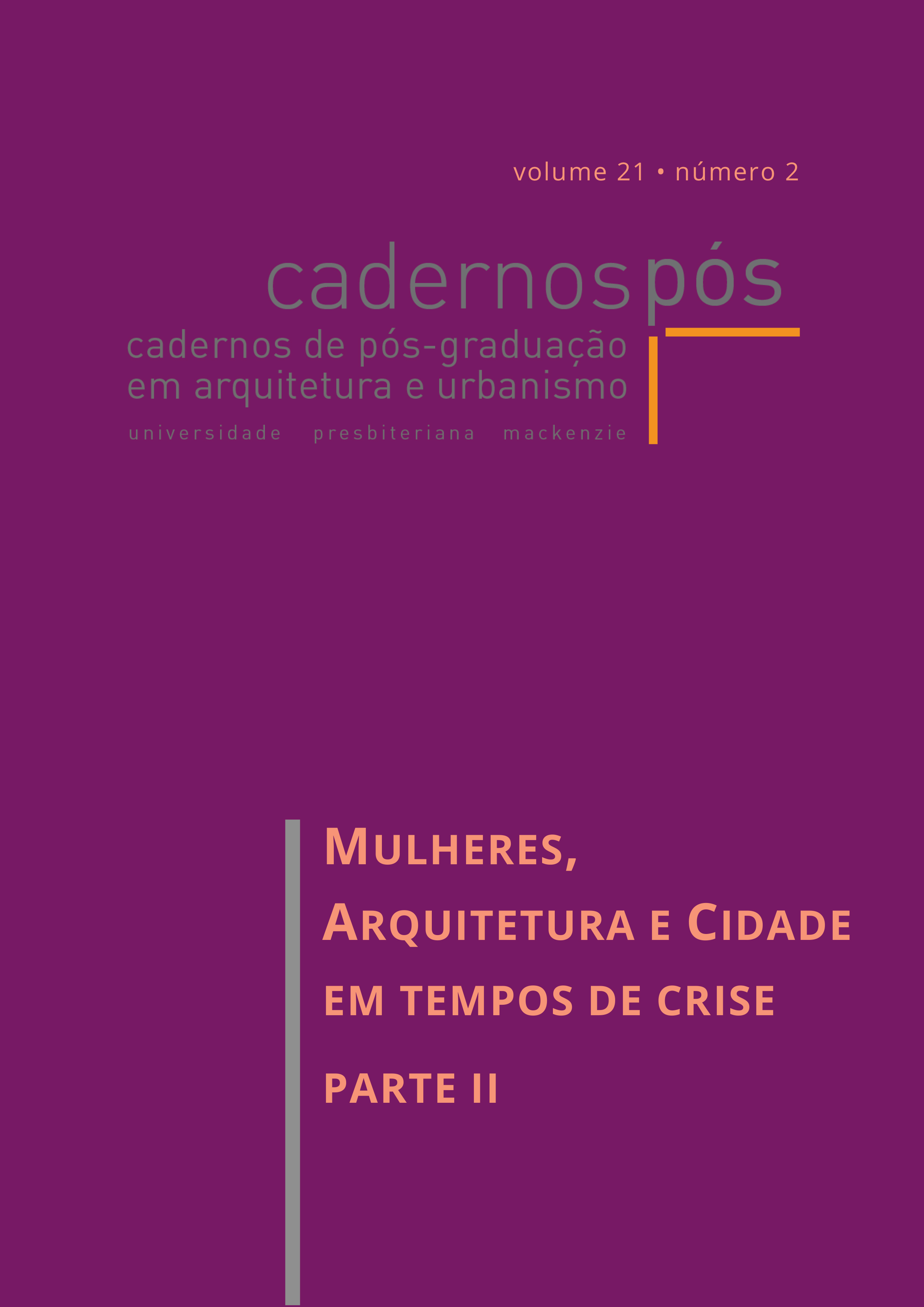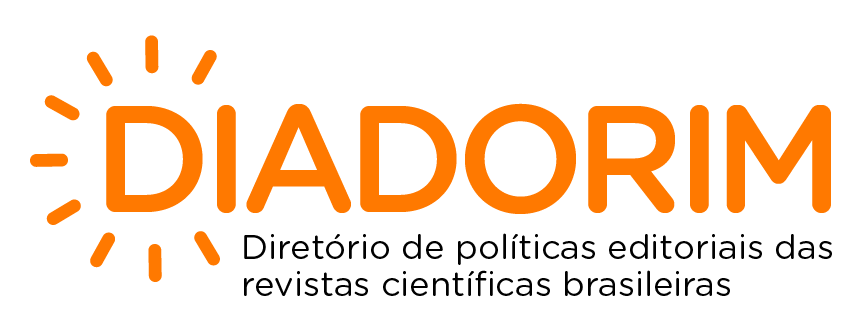Urban Indicators of Smart Cities
Transformation agents in the urban-architectural space
DOI:
https://doi.org/10.5935/cadernospos.v21n2p143-159Keywords:
Urban indicators; Environment; Smart cities; Passo Fundo; Urban space.Abstract
The urban environment has been permeated by important changes arising from the phenomenon of urbanization. Such phenomenon generates some of the main problems of contemporary cities, in the social, environmental and economic dimensions. Thus, planning and managing cities has been a challenge for public managers. An initiative that seeks to assist in this process is the concept of smart cities, which uses ICT as agents of transformation in the urban environment. One of the tools derived from this concept is the use of indicators to measure services and infrastructure in cities. In this sense, the objective of this article is to analyze the urban indicators of environment of the city of Passo Fundo. In the methodology, the indicators of the Ranking Connected Smart Cities were used as a reference, as well as a regional section of the medium-sized cities best classified in the ranking. The results show that most of the Passo Fundo indices are lower than those of the cities analyzed. However, the city has satisfactory rates, such as total urban service in water supply, and 98.1% coverage of solid waste collection, which are important initiatives in the quest to become a more intelligent and sustainable city.
Downloads
References
ALVES, M. A.; DIAS, R. C.; SEIXAS, P. C. Smart cities no Brasil e em Portugal: o estado da arte. Urbe, Revista Brasileira de Gestão Urbana, v. 11, p. 1-15, nov. 2019. Disponível em: https://www.scielo.br/pdf/urbe/v11/2175-3369-urbe-11-e20190061.pdf. Acesso em: 10 maio 2020.
ASSOCIAÇÃO BRASILEIRA DE NORMAS TÉCNICAS. ABNT NBR ISO 37122. Cidades e comunidades sustentáveis – indicadores para cidades inteligentes. Disponível em: https://www.abntcatalogo.com.br/norma.aspx?ID=446967. Acesso em: 2 nov. 2020.
AUGÉ, M. Pour une anthropologie des mondes contemporains. Paris: Aubier, 1994.
BATTY, M.; AXHAUSEN, K. W.; GIANNOTTI, F. Smart cities of the future. The European Physical Journal, v. 214, p. 481-518, 2012.
BRANDÃO NETO, J. S. O papel do desenho urbano no planejamento estratégico: a nova postura do arquiteto no plano urbano contemporâneo. 2002. Disponível em: https://www.vitruvius.com.br/revistas/read/arquitextos/03.025/773. Acesso em: 27 maio 2020.
CARAGLIU, A.; DEL BO, C.; NUKAMP, P. Smart cities in Europe. In: CENTRAL EUROPEAN CONFERENCE IN REGIONAL SCIENCE, Kosice 3., 2009. Disponível em: https://inta-aivn.org/images/cc/Urbanism/background%20documents/01_03_Nijkamp.pdf. Acesso em: 27 de abr. 2020.
CASTELLS, M. A questão urbana. 4. ed. Rio de Janeiro: Paz e Terra, 2009.
CENTRO NACIONAL DE MONITORAMENTO E ALERTAS DE DESASTRES NATURAIS. Disponível em: http://www.cemaden.gov.br/categoria/redededados/. Acesso em: 27 maio 2020.
COELHO, A. B. Habitar as relações entre bairro e habitação. Revista Infohabitar, Lisboa, v. 1, n. 226, p. 226-223, 2008. Disponível em: http://infohabitar.blogspot.com/2008/12/habitar-as-relaes-entre-o-bairro-e.html. Acesso em: 27 maio 2020.
CONNECTED SMART CITIES. Construção de cidades mais inteligentes, humanas e sustentáveis. 2019. Disponível em: https://www.connectedsmartcities.com.br/. Acesso em: 10 abr. 2020.
DE PAOLI, D. O valor do desenho urbano na construção de bairros habitacionais e comunidades. 2013. Tese (Doutorado em Arquitetura, Tecnologia e Cidade) –Universidade Estadual de Campinas, Campinas, 2013.
FERRETTO, D. Passo Fundo: estruturação urbana de uma cidade média gaúcha. 2012. Dissertação (Mestrado em Arquitetura e Urbanismo) – Universidade de São Paulo, São Paulo, 2012.
GIBSON, D.; KOZMETSKY, G.; SMILOR, R. The technopolis phenomenon: smart cities, fast systems, global networks, rowman and littlefield. Rowman & Littlefield Publishers: New York, 1992.
GIFFINGER, R. et al. Smart cities: ranking of European medium-sized cities. Vienna: Centre of Regional Science, Vienna University of Tecnology, 2007.
GIL-GARCIA, R.; PARDO, T. A; NAM, T. (org.). Smarter as the new urban agenda: a comprehensive view of the 21st century city. Springer International Publishing AG: Cham, 2016.
GONZÁLEZ, M. F. La smart city como imaginario socio-tecnológico: la construcíon de la utopía urbana digital. 2015. Tesis (Doctorado en Sociología) – Universidad del País Vasco, Lejona, 2015.
HAESBAERT, R. Da desterritorialização à multiterritorialidade. In: ENCONTRO DE GEÓGRAFOS DA AMÉRICA LATINA, 10., 2005, São Paulo. [Anais...]. São Paulo: USP, 2005.
ÍNDICE DE DESENVOLVIMENTO SOCIOECONÔMICO. Passo Fundo. 2015. Disponível em https://atlassocioeconomico.rs.gov.br/indice-de-desenvolvimento-socioeconomico-novo-idese. Acesso em: 20 maio 2020.
INSTITUTO BRASILEIRO DE GEOGRAFIA E ESTATÍSTICA. Indicadores de Desenvolvimento Sustentável. IBGE, 2012. Disponível em: https://sidra.ibge.gov.br/pesquisa/ids/tabelas. Acesso em: 21 maio 2020.
LEITE, C.; AWAD, J. C. M. Cidades sustentáveis, cidades inteligentes: desenvolvimento sustentável num planeta urbano. Porto Alegre: Bookman, 2012.
MARTINS, M. de F.; CÂNDIDO, G. A. Sistemas de indicadores de sustentabilidade urbana: os desafios do processo de mensuração, análise e monitoramento. Sustentabilidade em Debate, Brasília, v. 6 n. 2, p. 138-154, maio/ago. 2015. Disponível em: https://periodicos.unb.br/index.php/sust/index. Acesso em: 21 abr. 2020.
MEDRANO, L. Habitação coletiva e cidade: invenção sem ruptura. Revista do Programa de Pós-Graduação em Arquitetura e Urbanismo da FAUUSP, n. 28, p. 54-71, 1º dez. 2010.
NAM, T.; PARDO, T. A. Conceptualizing smart city with dimensions of technology, people, and institutions. In: ANNUAL INTERNATIONAL DIGITAL GOVERMNENT RESEARCH CONFERENCE: DIGITAL GOVEMMENT INNOVATION IN CHALLENGING TIMES, College Park Maryland, 12., 2011. Proceedings […]. ACM: New York, 2011. p. 282-291.
ORGANIZAÇÃO DAS NAÇÕES UNIDAS. Objetivos de Desenvolvimento Sustentável. ONU, 2015. Disponível em: https://nacoesunidas.org/pos2015/agenda2030/. Acesso em: 14 maio 2020.
PALETTA, F. C.; VASCONCELOS, P. O.; GONÇALVES, Y. S. A biblioteca no contexto das cidades inteligentes. Pesquisa Brasileira em Ciência da Informação e Biblioteconomia, João Pessoa, v. 10, n. 2, p. 1-18, 2015.
RHEINGANTZ, P. A.; ALCANTARA, D. de; DEL RIO, V. A influência do projeto na qualidade do lugar: percepção da qualidade em áreas residenciais no Rio de janeiro, Brasil. Revista de Estudos Regionais e Urbanos, Curitiba, v. 2, n. 100, p. 98-115, dez. 2005.
SISTEMA NACIONAL DE INFORMAÇÕES SOBRE SANEAMENTO. 2018. Disponível em: http://www.snis.gov.br/menu-coleta-dados. Acesso em: 21 maio 2020.
SOLÁ-MORALES, I. Territórios. Barcelona: Editorial Gustavo Gili, 2002.
USTUGOVA, S. et al. Geonalytical system for suppirt of urban processes management tasks. In: KRAVETS, A. et al. (ed.). Creativity in intelligent technologies and data science. 2. ed. Volgograd: Cit&ds, 2017. p. 432-463.
WEISS, M. C. Os desafios à gestão das cidades: uma chamada para ação em tempos de emergência das cidades inteligentes no Brasil. Revista Direito da Cidade, v. 9, p. 788-824, 2017.
Downloads
Published
Versions
- 2022-12-04 (2)
- 2021-11-28 (1)
How to Cite
Issue
Section
License
Authors who publish in this journal agree to the following terms:
a) Authors retain the copyright and grant the journal the right of first publication, with the Project simultaneously licensed under the Creative Commons Attribution License that allows the sharing of the Project with recognition of the authorship and initial publication in this journal.
b) Authors are authorized to assume additional contracts separately for the non-exclusive distribution of the version of the Project published in this journal (e.g., publishing in an institutional repository or as a book chapter), indicating that it was originally published in this journal, with a link to the article.








 Todo o conteúdo de Cadernos de Pós-Graduação em Arquitetura e Urbanismo está licenciado sob
Todo o conteúdo de Cadernos de Pós-Graduação em Arquitetura e Urbanismo está licenciado sob 